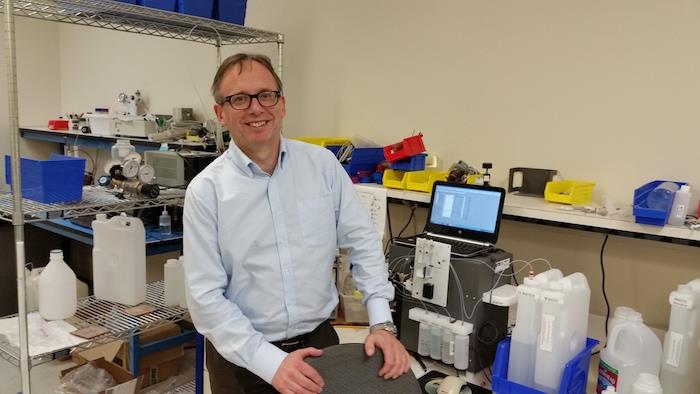Top Stories
"Non-traditional" doesn’t begin to describe Ph.D. Education student Rick Bacon. While most of us are getting a Ph.D. to get a better job, Rick Bacon already has a job he loves as CEO of Aqua Metrology Systems, a start-up with Goleta as a client. Instead, he’s earning his Ph.D. to help understand how to widen access of underserved populations to learning and employment opportunities.
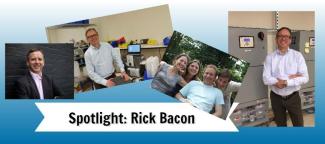
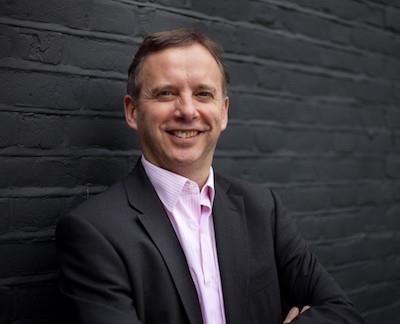 The term non-traditional doesn't even begin to explain second-year Ph.D. Education student Rick Bacon. While most of us are getting a Ph.D. to get a better job, Rick Bacon already has a job he loves as CEO of Aqua Metrology Systems, a Silicon Valley start-up with the City of Goleta as a client. Instead, he's earning his Ph.D. to help understand how to widen access of underserved populations to learning and employment opportunities and wants to get business involved to help make it happen.
The term non-traditional doesn't even begin to explain second-year Ph.D. Education student Rick Bacon. While most of us are getting a Ph.D. to get a better job, Rick Bacon already has a job he loves as CEO of Aqua Metrology Systems, a Silicon Valley start-up with the City of Goleta as a client. Instead, he's earning his Ph.D. to help understand how to widen access of underserved populations to learning and employment opportunities and wants to get business involved to help make it happen.
It's all part of a process of giving back. Bacon originally grew up outside of the U.S., near Chichester, UK, in a farming community. While many of his friends never left, he was afforded the chance to get a good education and earned a degree in Land Economy from Cambridge.
I sat down with him and an undergraduate student, Cani Villasenor (a UCSB undergraduate denior in Hydrological Sciences and Policy), who was working on Bacon's business and education partnership in Goleta. We talked about what inspired him to come back to university, what he hopes to achieve, and what he and Cani had learned from collaborating on the education project.
What would people be most surprised to know about you?
Most people are surprised to hear that a CEO is doing a Ph.D.
So why did you come back?
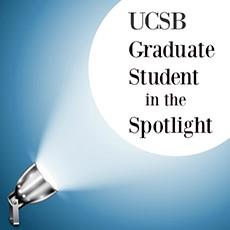 I've been lucky in life. I had the opportunity to get a first-class degree. And then I looked around me and saw bright kids in underserved populations who were in need of access to new types of learning and employment opportunities. It's a social justice issue supported by a non-profit, helping inner-city students learn how to read the world and what it takes to be successful. I wanted to replicate this model, but education systems do not operate like a business. I met an alum of UCSB, and they said I would need to learn how education works, how learning takes place in order to avoid the mistakes many business people make by thinking they have ready-made answers for how to improve the education system. This resonated with me so much that I petitioned to become a student at UCSB.
I've been lucky in life. I had the opportunity to get a first-class degree. And then I looked around me and saw bright kids in underserved populations who were in need of access to new types of learning and employment opportunities. It's a social justice issue supported by a non-profit, helping inner-city students learn how to read the world and what it takes to be successful. I wanted to replicate this model, but education systems do not operate like a business. I met an alum of UCSB, and they said I would need to learn how education works, how learning takes place in order to avoid the mistakes many business people make by thinking they have ready-made answers for how to improve the education system. This resonated with me so much that I petitioned to become a student at UCSB.
How would you best describe your research to someone who wasn't in your field?
I'm using an interactional ethnographic lens to examine ways that partnerships between business and education leaders form and develop to create learning and development opportunities for young people in underserved populations.
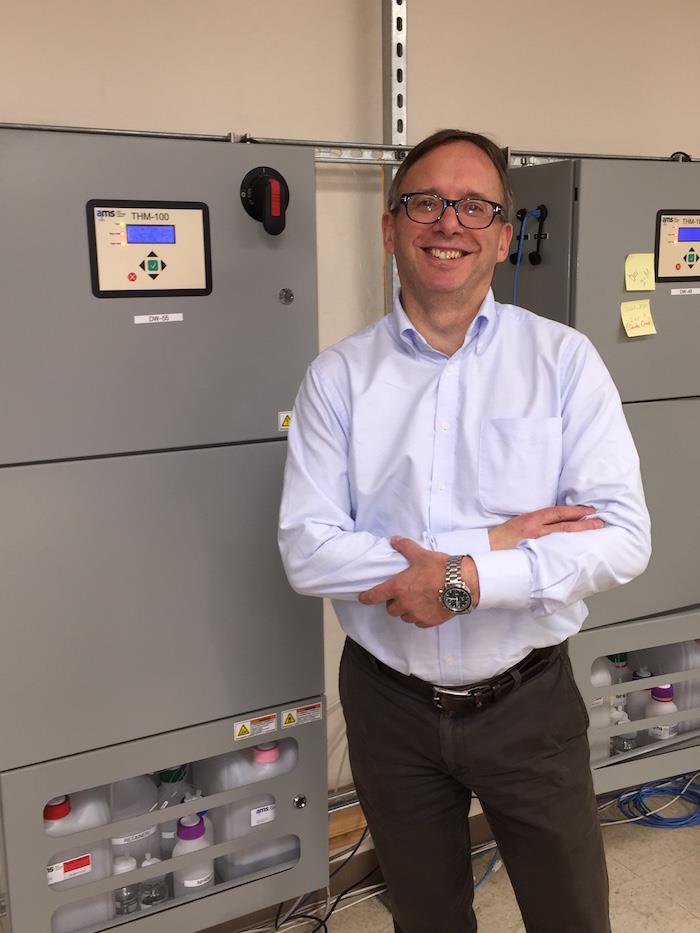 So how are you doing that here on your project in Goleta?
So how are you doing that here on your project in Goleta?
Rick: At Aqua Metrology Systems (AMS), we design and manufacture online water quality monitoring systems that test water for contaminants, such as chrome or arsenic. One of our clients who uses this technology is the City of Goleta. They have several undergraduate interns working for them. So this is a model for business to work with and involve undergraduates and graduates in a project for the benefit of the community. It's a win-win-win for everyone involved.
What do the undergraduate interns do?
Cani: We look at water quality because of the drought. We use the analyzers from AMS. All the data goes to the cloud. I use the analyzer to make improvements and operational changes.
What have you learned as part of this project?
Cani: I learned skills to lead a team of my own interns. That by using this analyzer we were able to make a bigger impact on water quality. Also without using the cloud, we would not be able to give work to other people. The company doesn't want to employ five interns at the facility. So by using technology and the cloud, more people are able to be involved.
Rick: It's a telling case, of how we (business, water agencies, students and faculty) could work this way across the state. It's also a very interdisciplinary approach bringing together different types of knowledge and expertise. How do you bring all these different actors and systems together and create a common language? I am an "insider" and "outsider" to this, and it's the basis of my Ph.D. research of a statewide water quality improvement project that is in the planning phase.
The Water Resources and Policy Initiatives project out of CSU San Bernardino in support of cleaner water for Disadvantaged Communities (DAC). They will work with 400 underserved communities, as part of a 3-year project involving students from every level: CSUs, UCs, and community colleges and NGOs.
Turning back to school. After so many years away, what do you wish you had known before you started grad school?
Writing an essay is not like writing a business report, and I forgot how intensive education is. If you take it seriously, it's very hard work. What most surprised me was some students are happy just to get the passing grade, rather than make the most of this amazing opportunity.
You're a businessman and graduate student. What is your favorite thing to do to relax?
I run, play tennis, and listen to music (everything from classical to flamenco).
What's in high rotation on your playlist these days?
I'm going to see Merle Haggard and Bruce Springsteen next month.
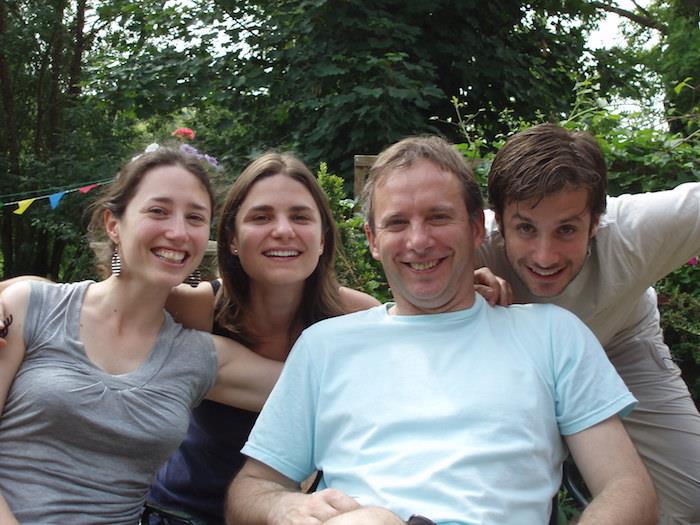 What is your biggest accomplishment in life and why?
What is your biggest accomplishment in life and why?
Three wonderful kids, all married and four wonderful grandkids. - I started young!
What has had the biggest impact or influence on you and helped shape who you are today?
I had a mentor at school. He told me to forget my dream of becoming a professional soccer player because it was a poor use of my talents. He convinced me to go to college. Also Professor Judith Green here, who convinced me I could bring something to the world of education.
What do you hope to be doing 5 or 10 years out of graduate school?
Improving educational and employment access for underserved communities, either through policy or by being involved in the practical business side.
